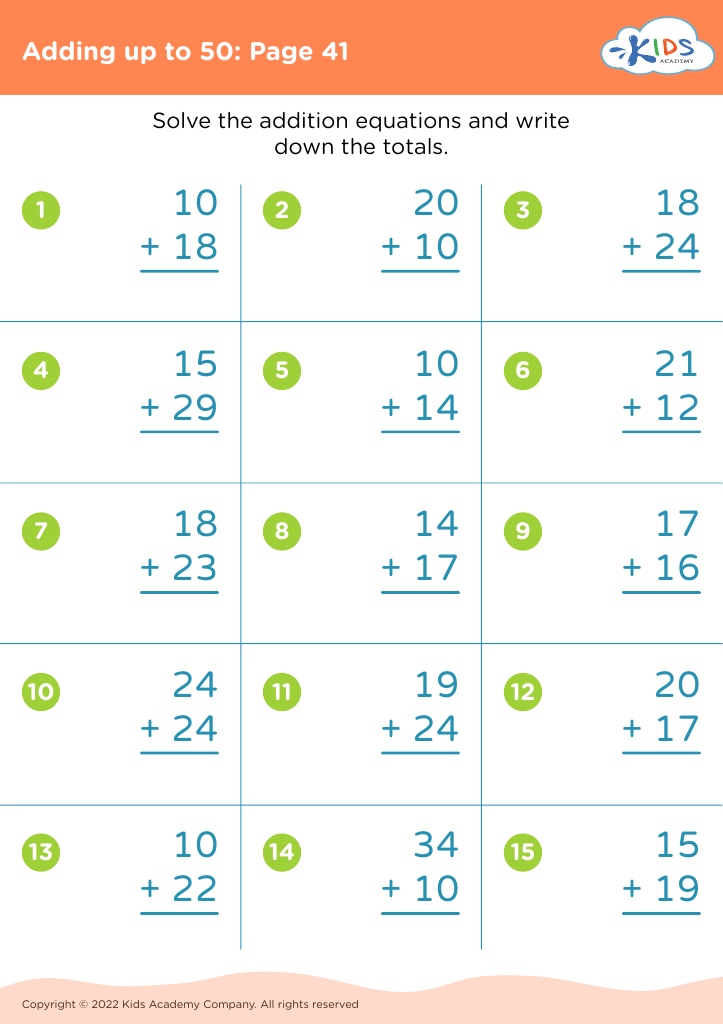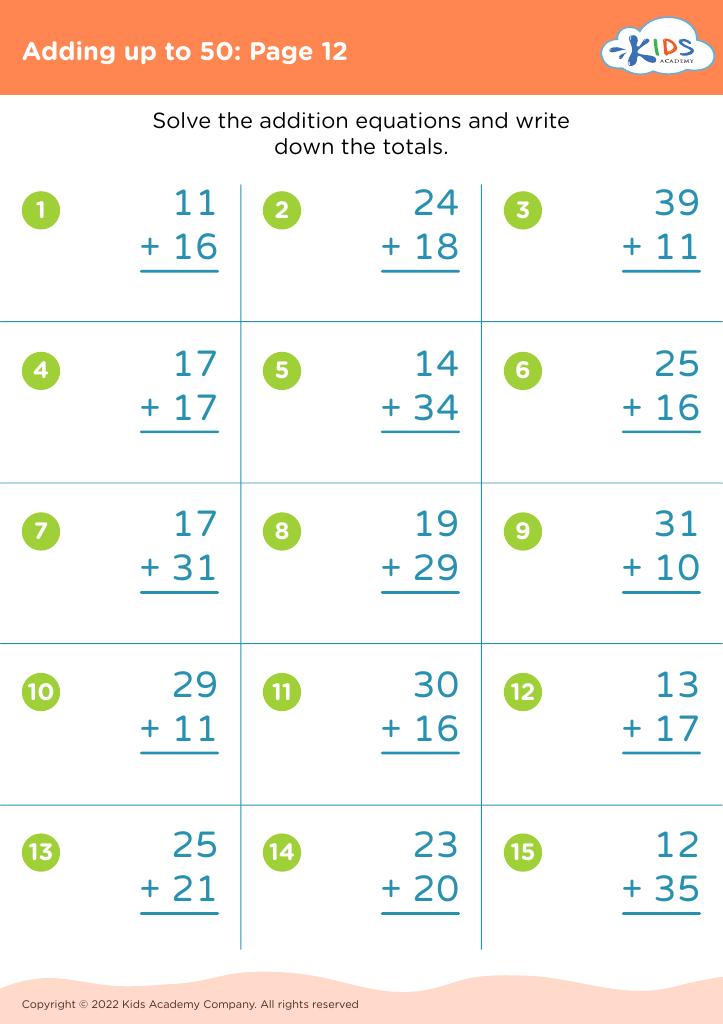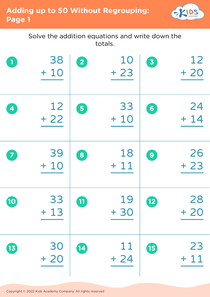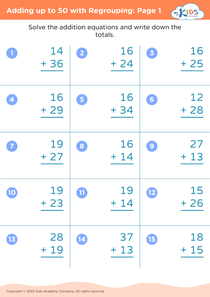Counting practice Adding up to 50 Misc Worksheets for Ages 6-8
5 filtered results
-
From - To
Welcome to our Counting Practice: Adding Up to 50 Misc Worksheets, specifically crafted for children ages 6 to 8. These engaging worksheets foster essential math skills by providing fun and interactive exercises to help young learners strengthen their counting and addition abilities. With a variety of activities designed to capture their interest, kids will explore concepts like number recognition and basic addition as they practice adding numbers up to 50. Our easy-to-use worksheets are perfect for both classroom and home settings, allowing for individualized practice and support. Enhance your child’s math skills today with our dynamic counting resources!
Counting practice, especially focusing on addition up to 50 for ages 6-8, is crucial for young learners and their development. This foundational skill not only boosts numerical fluency but also prepares children for more complex mathematical concepts. At this developmental stage, kids are building cognitive and problem-solving abilities, and practicing addition helps them understand number relationships, which is vital for future math success.
For parents and teachers, facilitating this practice is an investment in a child’s educational journey. Engaging in counting activities can enhance a child’s confidence, showing them that math is a skill they can master. Additionally, incorporating games and real-life scenarios can make learning more engaging, fostering a positive attitude towards mathematics.
Moreover, mastering addition up to 50 lays the groundwork for more advanced concepts such as subtraction, multiplication, and understanding measurement, reinforcing numeracy skills essential for everyday life. Those who are proficient in these basics are often more prepared for interdisciplinary subjects, linking math to science, economics, and even art.
By prioritizing counting practice, parents and teachers invest not just in math skills but also in critical thinking, persistence, and confidence, equipping children for academic success and beyond.



















